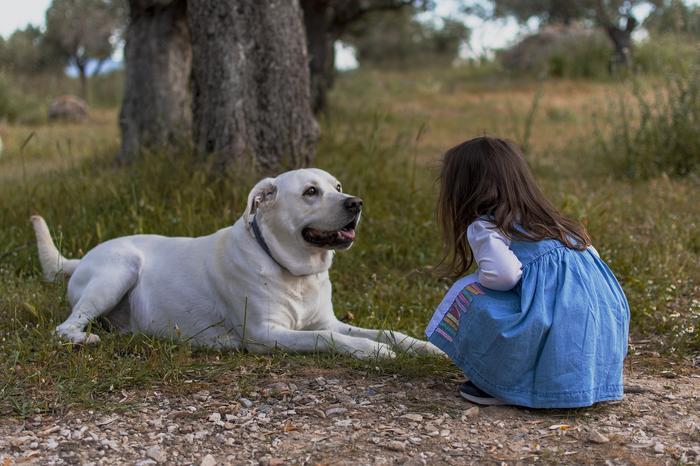In a study of children and adults, both higher age and having had a pet dog were associated with better ability to recognize dog emotions from facial expressions. Heini Törnqvist of the University of Jyväskylä, Finland, and colleagues present these findings in the open-access journal PLOS ONE on July 26, 2023, showing 4-yr-olds were less able to recognize aggressive dog expressions than older children and adults.

Credit: StephenCh, Pixabay, CC0 (https://creativecommons.org/publicdomain/zero/1.0/)
In a study of children and adults, both higher age and having had a pet dog were associated with better ability to recognize dog emotions from facial expressions. Heini Törnqvist of the University of Jyväskylä, Finland, and colleagues present these findings in the open-access journal PLOS ONE on July 26, 2023, showing 4-yr-olds were less able to recognize aggressive dog expressions than older children and adults.
Recognizing emotions from facial expressions is a key part of nonverbal communication between species. Prior research has suggested that 3- to 5-year-olds may be less able to recognize dogs’ emotions than older children and adults. However, more research is needed to clarify the relationships between age, prior dog experience, and the ability to recognize dog emotions.
To help deepen understanding, Törnqvist and colleagues conducted a study involving 34 adults, 28 4-year-olds and 31 6-year-olds. All participants were asked to view images on a computer screen of various dog and human faces displaying different expressions. The participants were then asked to rate each expression according to its level of happiness, anger, positivity, negativity, and amount of emotional arousal.
Overall, in line with prior research, people of all ages and prior dog experience—having had a pet dog in their family—gave roughly similar ratings of the images. Still, there were some statistical differences between the groups.
Regardless of pet dog experience, adults and 6-year-olds more often recognized aggressive dog faces correctly than 4-year-olds. However, 4- and 6-year-olds showed similar abilities in recognizing human expressions.
Compared to adult participants, children rated aggressive dog expressions as being more positive and having a lower level of arousal. Participants without pet dog experience rated aggressive dog expressions as being more positive than participants with dog experience. Compared to aggressive human expressions, aggressive dog expressions were rated by children as being more positive and having lower arousal.
These findings suggest that people’s ability to recognize dog emotions, especially aggression, may improve with age, which could arise from both more experience with dogs and maturation of brain structures involved in recognizing expressions. More research is needed to deepen these findings, which could also help inform efforts to improve the quality of interactions between children and dogs.
The authors add: “Aggressive dog expressions were especially rated incorrectly by 4-year-olds, and they rated aggressive dogs as significantly more positive and lower in arousal than adults.”
#####
In your coverage please use this URL to provide access to the freely available article in PLOS ONE: https://journals.plos.org/plosone/article?id=10.1371/journal.pone.0288137
Citation: Törnqvist H, Höller H, Vsetecka K, Hoehl S, Kujala MV (2023) Matters of development and experience: Evaluation of dog and human emotional expressions by children and adults. PLoS ONE 18(7): e0288137. https://doi.org/10.1371/journal.pone.0288137
Author Countries: Finland, Austria
Funding: This study received funding from the Academy of Finland (grants # 341092 and # 346430 to MVK). The funders had no role in study design, data collection and analysis, decision to publish, or preparation of the manuscript.
Journal
PLoS ONE
DOI
10.1371/journal.pone.0288137
Method of Research
Experimental study
Subject of Research
People
Article Title
Matters of development and experience: Evaluation of dog and human emotional expressions by children and adults
Article Publication Date
26-Jul-2023
COI Statement
The authors have declared that no competing interests exist.




